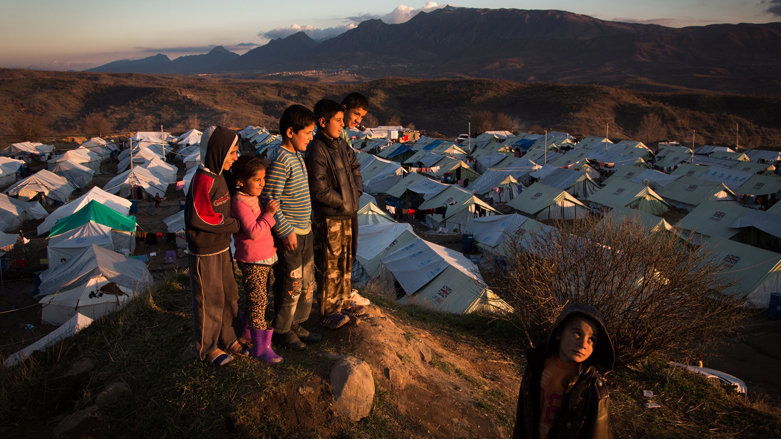Following repeated promises, Iraq sets new conditions to end IDP file
A senior official said that the federal government is working with local authorities to facilitate the return of IDPs by implementing projects in their areas of origin to rebuild them after the war against ISIS left much of them in ruin.

ERBIL (Kurdistan 24) – A senior Iraqi official on Friday outlined several conditions to facilitate the end of the internally displaced persons (IDP) issue after repeated promises to close displacement camps by the end of 2020 failed to deliver.
Millions of Iraqis have been displaced to different parts of the country as well as the Kurdistan Region and neighboring countries after ISIS took over vast swathes territories of Iraq in 2014.
Amid Iraqi government efforts to return IDPs to their areas of origin, international humanitarian organizations have indicated that many of their areas remain unsafe, with basic services, including water and electricity, lacking.
The Iraqi Ministry of Migration and Displacement previously said 2020 will be "the year the displacement file would be closed." Till now, Anbar and Nineveh provinces still host displacement camps. There are such facilities in the Kurdistan Region as well.
Iraq’s official news agency quoted as saying Ali Abbas, a senior official in the Ministry of Migration and Displacement, that the IDP file "is complex, and a specific date cannot be set for its completion because there are several issues that are outside the control of the ministry."
The areas that witnessed battles are in dire need of funds to rebuild what was damaged by the war by the Iraqi government, backed by the US-led international coalition, to defeat ISIS.
Baghdad previously claimed it needs $100 billion to rebuild these areas amid an ongoing financial crisis prompted by the COVID-19 global pandemic.
Abbas said that his ministry held a meeting on Thursday with the undersecretaries of ministries and governors "to accelerate the process of implementing projects in the liberated areas."
He noted that efforts would especially target areas "where the return of [IDPs] is not currently possible, such as Sinjar and surrounding villages, in addition to Diyala, Kirkuk, and Salahuddin provinces."
"The ministry's plan depends on implementing the government program before the end of the current year, and that the remaining time of this year will provide an opportunity to finish closing the rest of the camps."
The federal government has returned many displaced peoples to their homes and closed many camps in the Iraqi provinces, except for the Kurdistan Region.
Abbas pointed out that the Kurdistan Region camps remain open due to the lack of security and service situation in the IDP’s areas of origin.